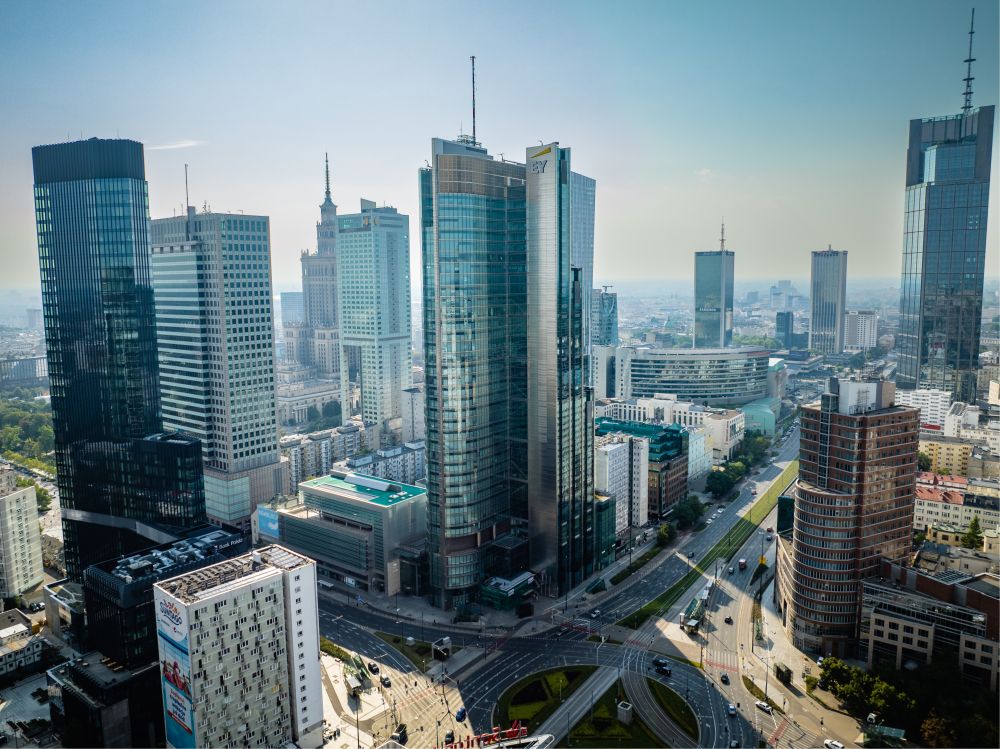Warsaw's renewable energy drive: navigating energy poverty through tailored solutions
1 February 2024
Warsaw, the capital of Poland, is gearing up in its fight against energy poverty through a strategic focus on renewable energy development. In a country where approximately 12% of the population is affected by energy poverty, the City of Warsaw is taking proactive measures to address this pressing issue.
The government's adoption of the Energy Policy of Poland until 2040 (EPP2040) signals a significant commitment to transforming the nation's energy landscape. Key components of this crucial policy include ambitious targets such as reducing energy poverty to a maximum of 6% of households and a substantial increase in installed photovoltaic capacity by 2030 and 2040.
However, specific situations at national or regional level should be considered: in Poland, regional vulnerability ranges from 6% to 18% across provinces, with Eastern Poland struggling due to disproportionately high energy costs compared to income, while the West contends with the challenge of large, under-heated households. In the meantime, solar energy production is predominantly viable in summer, posing efficiency challenges during winter months.
Defining and addressing energy poverty in a specific urban context like Warsaw can also be challenging due to limited knowledge about its prevalence. To tackle this, the City of Warsaw has embarked on several initiatives, including social allowances for energy bills to low-income citizens, financial schemes supporting renewable energy investments, and a team of energy advisors offering free efficiency advice.
The primary goal for Warsaw within the Sun4All Community of Practice is to enhance the city's capacity to tackle energy poverty and ensure a fair energy transition. The objectives set forth encompass a comprehensive approach:
- Diagnosing the current state of energy poverty and evaluating existing strategies and actions.
- Analysing the local energy ecosystem, forging strategic partnerships, and learning from best practices in similar regions.
- Identifying barriers and opportunities for developing energy communities in Warsaw.
- Determining potential beneficiaries based on socio-economic criteria for the Sun4All model.
- Analysing financial aspects and planning for the local adoption of the Sun4All model.
Participation in the Sun4All Community of Practice stands as a crucial opportunity for Warsaw. This collaboration as well as the allocation of substantial financial resources for private and social building PV installations demonstrates the city's commitment. However, the focus remains on maximizing benefits for energy poverty households and improving collaboration with housing associations and social services.
“We put energy poverty at the center of our policy because we want to include everyone, we do not want to make the rift bigger between different inhabitants of our city”, stated the Mayor of Warsaw, Rafał Trzaskowski, at the International Annual Conference on Energy Poverty on 19-20 September 2023. This conference further enriched Warsaw's understanding of diverse energy poverty situations across countries. Organised by the Energy Poverty Advisory Hub (EPAH) and the Directorate-General for Energy (DG ENER) of the European Commission with the City of Warsaw as host, it emphasized the need for a more holistic, citizen-centric approach, immediate responses, and a global social context beyond just energy considerations.
As Warsaw navigates these challenges and opportunities, its dedication to a renewable energy future lights the path toward a more sustainable and fair cityscape.
Image (Marcin Klimczak, Rondo Daszyńskiego 3, 2023)
All news
This project has received funding from the European Union's Horizon 2020 research and innovation programme under grant agreement N°101032239.

